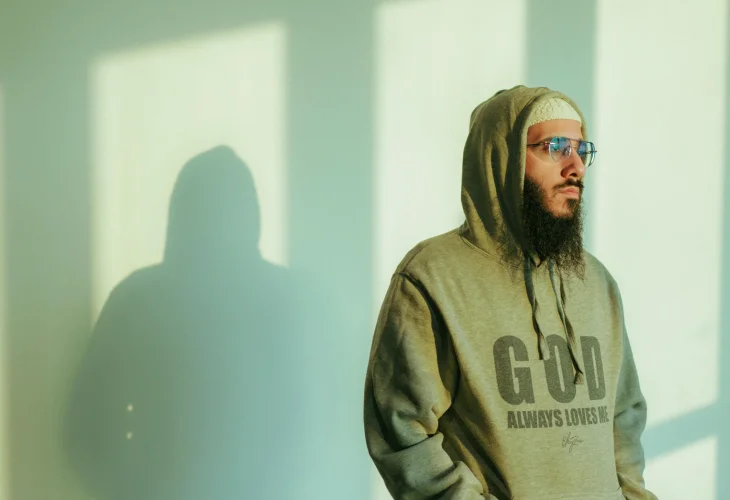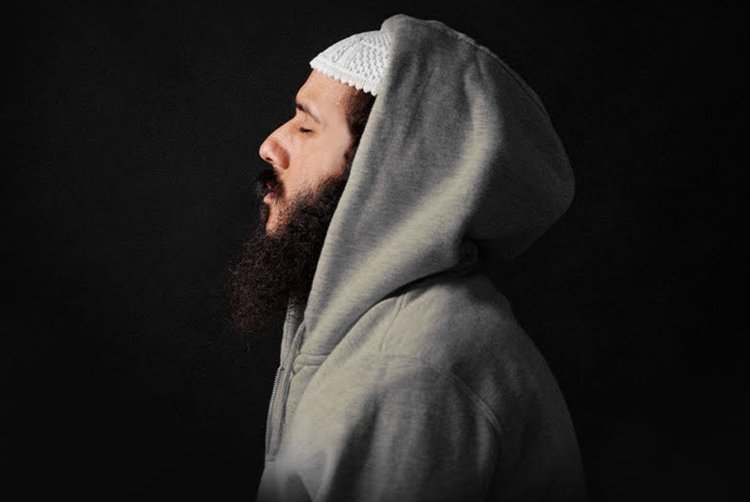Yair Aliatzur Shares the Heartwarming Story Behind "Even Better"
Yair Aliatzur, the singer who captured the nation with his hit "Even Better," reveals the touching story behind the song, his mission, and his special bond with Rabbi Shalom Arush.
 Yair Aliatzur (Photo: Yitzhak Hertz)
Yair Aliatzur (Photo: Yitzhak Hertz)Have you also found that the song "Even Better" is everywhere you turn? You are not alone. At home, on the road, in the supermarket, at work, even at your kid's birthday party or while waiting at the doctor's office. The lyrics are simple, the melody is catchy, and the message is clear: "Hashem always loves me," with just one request – "Even better."
So what exactly makes this song such an unprecedented hit? What drove musician Yair Aliatzur to create it, and what are the most heartwarming stories linked to it?
When we asked Aliatzur about this, a shy smile appeared on his face—one of those smiles that kept coming up during the interview. It seems he's not entirely comfortable with the fame, and even after performing on some of the biggest stages in the country, he hasn’t fully adjusted.
On the Path to Judaism
Aliatzur began his musical journey over 20 years ago as a rapper, performing in clubs and filling halls. But then his life took a turn: he found his way back to Judaism, redefined his path, and started studying in a yeshiva, dedicating all his time to it.
"I grew up in a religious-traditional home, but at 14, I left religion," he says. "Shortly after, around the age of 16, I started making music—performing on stages, and I really connected with that world. Then came my military service, and a few months before my discharge, someone gave me Rabbi Arush's book 'In the Garden of Faith,' which transformed me. Thanks to it, I discovered the Creator of the universe, which despite my religious upbringing, I never truly felt. I began talking with Hashem daily. It wasn’t just talk; I genuinely felt Hashem was responding. That’s how I found the Creator, and how I decided to start learning in a yeshiva."
Aliatzur was twenty when he began the process of becoming more religious and completely disconnected from the music world, which he returned to only years later—this time from a spiritual and empowering place, as he puts it, "from a desire to spread goodness." This is what led him to compose the hit "Even Better," which achieved unprecedented success.
How do you explain the phenomenal success of this song?
"Honestly, I have no natural explanation for it. I began working on the song solely because Rabbi Arush asked me to create a melody for the words 'Hashem always loves me and will only bring good things, and even better things.' Hashem granted me the chance to compose the words with my friend Oren Levi, and I wrote and composed the rest of the verses by myself. I never dreamed it would become such a hit, but the Rabbi told me he prayed for a long time for the song to enter everyone's hearts and become an anthem. So, I guess it's the power of the Rabbi's prayers, because there's no natural explanation.
"I also believe that Hashem Himself blessed this song in particular, as He certainly wants each of us to know that we are always loved, no matter what we’ve been through or how we appear on the outside. Hashem will always love us and ensure we have only good, and even better."
Aliatzur pauses for a moment, then adds sincerely, "What makes me happier than the song's success are the stories that happen because of it. For instance, someone told me she was in a car, and had a severe accident. In those moments, trapped inside with the car wrecked, she started to sing 'Hashem always loves me...' and that gave her the strength to hold on until she was rescued. In another case, parents told me their four-year-old daughter, who hadn’t spoken a word, came back from kindergarten with this song and began speaking because of it. I was very moved by this."
 Yair Aliatzur (Photo: Shai Franco)
Yair Aliatzur (Photo: Shai Franco)Shyness on Stage
During our conversation, Aliatzur seems a bit bashful. Occasionally, he hides a smile behind his beard, almost apologetic, trying to vanish. He tries to talk as much as possible about the songs and less about the person behind them, about the message rather than the messenger.
How does performing on stage fit with your shy nature and aversion to fame?
"I don’t think I’m shy," he clarifies, "but I'm less of a politician than other singers and less of an actor. Performing doesn’t change who I am because I’m not trying to be someone I’m not; I’m just being myself. But yes, it obliges me to be more smiling and kind to my surroundings, understanding that after people give you so much love, you need to give love back."
As part of that love, Aliatzur's audience discovers that during his performances, he pauses to give out Rabbi Arush's book 'In the Garden of Faith,' aiming to enlighten the masses. An entirely unconventional move for a singer. "It’s very unnatural," Aliatzur responds when asked about it. "I sometimes even feel embarrassed to distribute the book because it disrupts the usual flow of the show, and it’s quite uncommon."
So why did you decide to do it? What’s behind the idea?
"My sole purpose in this musical endeavor is to make people feel good, to give them healthy and good lives," he explains. "After I personally saw how this book impacted me and transformed my life into a paradise on earth, I wanted others to learn it and also enjoy such a life. Of course, I look for creative ways to distribute the book each time. Sometimes I distribute it myself, and other times I ask others to stand outside with the books. It’s very important to me that the audience’s awakening doesn’t end with the show, but they go out and do something to improve their lives further, making them even better.
"Over the past few years, I’ve heard from many that the book literally saved their lives, helped them solve problems, balanced them, and genuinely made a positive impact. It’s no coincidence, given that the book is translated into 13 different languages, including Chinese. Even non-Jews understand its power."
A Mission During War
Even in the past year, during wartime, Aliatzur continued to perform between venues, though he significantly reduced his schedule initially. "It was very hard for me to sing and bring joy," he explains, "Emotionally, I felt I couldn’t dance and sing when so many hearts in our nation were breaking. During those days, I released the song 'No Comfort,' where I talk about feeling ashamed to sing and feeling like a madman. That was exactly how I felt. But then I talked about it with a good friend who said that if I didn’t sing, I would essentially lose my role because during wartime, everyone has their role, and if Hashem chooses to send the message through me, then that’s what I must do, to strengthen the spirit of the people of Israel.
"So yes, I returned to performances, going out into the field a lot. I performed for soldiers at bases and even went to hospitals. Sometimes I found myself in situations where I felt awkward singing—it seemed like the last thing that was appropriate. But I saw how it made them happy and turned them joyful, and I began to understand that my mission is to give as much strength as possible."
As someone who represents the ultra-Orthodox sector, do you feel you have a mission to explain it and answer questions about it?
"I don’t represent any sector. I am a messenger of Hashem and Rabbi Arush, who influences me and I do whatever he asks. Just as the Rabbi is a Rabbi for all of Israel, I am a singer for all of Israel. That’s my only approach."
 Rabbi Shalom Arush
Rabbi Shalom ArushThe Secret to Success
Besides "Even Better," are there other songs that the Rabbi was involved in writing?
"The Rabbi regularly reviews my texts, and most go through him," reveals Aliatzur, "He guides me on what to write and what not to. He also ordained that I make music and took on that responsibility. He actively wrote only the song 'Even Better,' but there's another song on a specific topic he requested."
Are there any songs you wrote that the Rabbi rejected?
"No, there aren't any songs that were shelved. To this day, there hasn’t been a song the Rabbi said not to release."
Honestly, what’s challenging in your line of work?
"It’s hard for me to answer this question, and I'll explain why: As part of my work, I’m part of a group of the country's top singers, and I’ve noticed that many experience very deep emotional struggles due to their work. But thank God, I am very far from that because I genuinely live with the sense that I have a good Father, and so my life isn’t hard. Not that I don’t face challenges—let’s be real, who doesn’t encounter trials in life? But someone with a good Father doesn’t need to worry. It’s like the difference between a child living in a home with a good father who cares for him versus an orphan growing up on the street. Those are worlds apart.
"This is also my opportunity to recommend to everyone to spend an hour a day in personal prayer, talking with Hashem, telling Him what you've done from yesterday until today, thanking Him for the good things that happened, and asking forgiveness for the less good things. Rabbi Nachman makes tremendous promises to anyone who devotes 60 full minutes to this daily, but even if you have a minute or two of personal prayer, it is beneficial. Start that way, and you’ll see how your life turns truly good."
Finally, can you share your future plans? What are you working on these days?
Aliatzur responds shyly. "We are working on good things," he says, speaking in the plural. Here lies the only hint he’s willing to release, as the new album he’s working on will include interesting, non-standard collaborations with major artists. "With Hashem’s help, a new song will be released soon that will give a sense of what's to come, followed by the album," he states, leaving us curious about what the next "Even Better" will bring.

